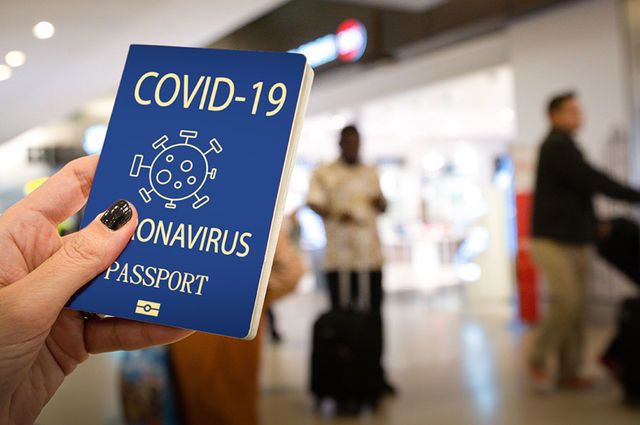What is your take on the coronavirus and its impact on our industry?
21 experts shared their view
Hospitality Net introduced a live timeline with relevant and industry-specific coronavirus news, resources and external updates. We asked our contributors to share their professional opinion with you.
COVID-19 is hitting the beating heart of every hotel hard
In “The Day After”, Hospitality is the Future
As an evaluator of leadership capability, I have been asked what it takes to lead in a time of crisis, such as COVID-19. My answer has been simple, “you must be equal parts realist, pragmatist and optimist. This mixture of archetypes is essential in dealing with the fast moving and unknown outcomes of a crisis.
Realist. a person who accepts a situation as it is and is prepared to deal with it accordingly.
To face a situation that is as complex as COVID, fact finding is critical. Like a complex puzzle, getting started in the known areas is a good start (start in the corners). Ask for help in areas that are unknown and take too long to figure out on your own. Set realistic timelines and don't lie to people. Everyone knows its going to be tough, acknowledge it.
Pragmatist. a person who is guided more by practical considerations than by ideals.
Emotional leaders tend to waiver and can get caught up in the drama. Don't let that happen. Like Level 5 leaders, don't get too high and don't get too low. Focus on the goal and marshal resources accordingly. Focus on how prediction, problem-solving, and action will deliver results.
Optimist. a person who is hopeful and confident about the future.
The COVID pandemic will be awfully cruel to mankind and our collective circumstance. But it will not last. It is how we recover that will distinguish us. Leaders who can paint a picture of that future and rally teams around that vision will be survivors and winners. Leaders who can show this level of adaptability will be the heroes.
This pandemic will cost many lives and even more jobs, no doubt. Employees in numbers I would not dare to estimate will see their livelihood options diminish – especially those in countries, which do not have reliable financial safety nets. The fight against COVID-19 will stop many sustainable development efforts, because available budgets will be needed otherwise.
However, every crisis is also an opportunity: to measure exactly how drastic degrowth impacts climate change; to understand how far we can adapt socially to a less consumeristic lifestyle; to make us aware of what we actually need to feel at ease, connect with people and have a sense of escape from routine, without being able to travel to faraway places. All of these insights might eventually shape a different and more sustainable tourism and hospitality industry. This greatly depends, however, on how we will approach the rebuilding of our industry – not least of all in terms of financial aid allocation. Sustainability must be at the heart this effort.
Otherwise, we are in for the bigger crises, the one we are unlikely to recover from any time soon as well as the crisis, which will cost significantly more lives: climate change. More than COVID-19 I fear a 'back to business as usual' after the crisis has passed.
Well, I had a topic all lined up for this week's column. I had completed most of the research and sat down on Monday to start writing. But with all that is going on in the world, I decided to put that on the shelf for a cycle or two. No one is going to take the time to read anything right now that doesn't talk about the novel Coronavirus and the COVID-19 disease. So, I started afresh and will diverge from my usual approach.
For those of you who don't know me, I've been in the hotel technology sector for 32 years, working closely for most of that time with many dozens of hotel CIOs, CMOs, COOs, CFOs, and CEOs, as well as with hundreds of top leaders from technology providers large and small. I was there through prior hotel industry downturns in 1991, 2001, and 2008, and had direct experience with regional disruptions due to SARS in 2003 and MERS in 2012.
If you want some good news, you'll find some tidbits toward the end of the article, but Rich is the good-news guy. I'm going to be the realist for now and paint a picture of where what we're likely to see over the next year or two. I will then try to help technology providers navigate their way through. And yes, there are some opportunities as well as the obvious threats.
First let's talk about the hotel industry itself. Regardless of the speed of recovery, 2020 will go down as the worst in modern history for hotels around the world. Many properties in hard-hit zones (now including the U.S.) are already closed or closing. They are already facing severe financial stress, and the dominance of mom-and-pop ownership of smaller hotels means that many have few if any options. Layoffs are already happening; if I extrapolate a few known numbers, we are probably already talking in the hundreds of thousands in the U.S. alone.
With governments, communities and businesses taking action to tackle the COVID-19 pandemic and support the welfare of their people, staff and customers, the hospitality industry is playing their part.
The travel and tourism industry faces an unprecedented existential crisis. Despite this, hotels and restaurants across the world continue to look for ways that their facilities and staff can support their local communities.
The hospitality industry has been innovative in their response:
- ITP members Hilton, IHG, Marriott and NH Hotel Group are among the many hotel companies and hotel associations working with local governments across the world to transform vacant hotel rooms into treatment facilities to support increasing demand on local healthcare systems. Other hotel companies include Best Western Great Britain, Melia, Travelodge and Whitbread.
- Hilton is engaging with their wider business networks to support the staff of their closed properties into temporary jobs in much needed services, including Amazon, Walgreens, Lidl and CVS Pharmacy.
- Extra capacity for homeless shelters is beginning to be created by hotels. For example, IHG in London is providing temporary accommodation for the next three months for rough sleepers and a Hilton hotel in New Orleans is providing food and accommodation for the next month. This measure is being explored by other governments with many hotel companies across different locations, including California, Paris and Dublin.
- Healthcare professionals working on the frontline are being offered free food and accommodation from large hotel brands including Four Seasons, OYO Hotels and Homes and Taj (IHCL), to independent hotels such as Chicago's Sophy Hyde Park Hotel and the Linton Lodge Hotel in Oxford, UK.
We are now in the midst of a pandemic that our industry and the whole world has never experienced before. These times will be challenging, but it will be imperative that we stand united, as an industry working towards the future. More than anything, this crisis highlights that we are all in this together. It is with this spirit that we will get through this period and see much brighter times in the very near future!
As a publisher in hospitality, Hospitality Net is at the epicenter of industry news coverage. We are currently seeing a 200% increase in traffic based solely on people who want to learn more and understand what is happening around us. Our goal is to inform you and everyone working in our industry about the news as it happens, by providing valuable insights from industry experts and offering guidance on the immediate future.
A live stream of relevant news to insights, market reports, opinions, webinars and more...
Visit Coronavirus SURVIVAL GUIDE
A comprehensive collection of links to first-aid resources for hoteliers...
We will publish as long as your contributed content is non-commercial and COVID-19 related...
This is a time to take care of yourselves and each other. Just know that we are thinking about you and the impact that this has on you personally as well as from a business perspective. We look forward to getting through this with a renewed and strengthened commitment to each other, and the passionate enthusiasm our industry is known for.
The hospitality business is in a precarious situation when a downturn in the market is caused by global health emergencies like the current COVID-19 epidemic. The top two concerns are 1) Balancing safety without unlawful discrimination and 2) Start discounting or hold prices?
- Balancing Safety. There is a very delicate fine line to walk for hospitality operators. Businesses have to be welcoming to all guests but the safety of customers and associates should never be compromised. How can we screen guests and employees to find out who can be contagious? Do we have a ground to refuse serving or to work with people of a given nationality or place of origin? I don't pretend to know all the answers but I am prepared to say that every decision-maker in a hospitality business has to be ready to defend a safety measure, a refusal of service or an implemented restriction if its legality or ethical ground is challenged in the court of law at a future date.
- Hold the price or start discounting when business becomes soft and unpredictable? I offer a simple thought: would you consider booking a night at a destination where you have grave concerns about your safety or well-being just because a deep discount is offered? Would the half-price accommodation suddenly make the risks acceptable? So the logical answer to the issue of discounting is that if the demand drop is not price related, we can't expect to fix it with price adjustment. Should one consider other measures to create a perception of value? Absolutely: upgrading, free value-added items (in hotels: free breakfast, free parking, no-charge wifi, welcome cocktail on the house, couponing of attractions, complimentary sightseeing, etc.) may offer incentives without dropping rates. One thing to remember: pricing down is fast and easy but raising prices back again is always an uphill battle.
Hospitality is said to be one of the oldest businesses on Earth. It is also the largest. Our own 25+ years of guiding the strategy behind protel #hoteltechnology pale to insignificance in the face of the biggest shake-up this industry has seen. COVID-19 is hitting the beating heart of every hotel hard. We at protel will do all we can to avert this mass cardiac arrest as global cashflows slowly dry up into tiny cash dribbles.
Ingo Dignas & Manfred Osthues, Co-Founders at protel
Coronavirus Fears Should Be Less Hype and Hospitality Can Help - Early this morning I was pulled off the beach (in my dreams) by a series of rapid-fire instant messages and emails. For those who have kids, it was like one of those middle of the night calls when they are staying overnight at a friend's house. Immediately your adrenaline builds, you get instant sweats and you can feel the beat of your heart reverberating through the entire bed frame.
The reason for this interruption was that ONE confirmed case of the coronavirus had been announced in a city where HFTP is participating in several events this month. Only one case of a virus and already we were being asked if we were going to cancel our participation. WHAT? ONE Case? No way!
Now that I am awake and we are NOT going to cancel, it seemed time for me to weigh in on the issue of the novel coronavirus. Although I am not a doctor or a scientist, I do have a background in health administration and education. My dream job in college was to run a hospital, but instead I began working for the Texas Restaurant Association and taught sanitation classes, earned a certification from the FDA and wrote a monthly column about health-related matters in their magazine. So, here are my suggestions based heavily on information from the World Health Organization (WHO) website.
Do not panic about the Coronavirus! For specific travel news, HFTP has added a coronavirus link on the Pineapplesearch.com home page that aggregates travel news from more than 600 sources. If you want up-to-date health news on the coronavirus, check out who.int or www.cdc.gov. Please note that WHO has a Q&A about all the myths flying around social media.
Click here to read full article
The short-term impact of 2019-nCoV novel coronavirus on the global travel industry has been significant. According to the International Air Transport Association, airlines are set to loose $133 billion in revenue if COVID-19 continues, while travel by Chinese nationals has slowed significantly. Coronavirus has also affected the business community, as major corporations scale back on nonessential travel. This has led to the cancellation of several major global business conferences, including the Mobile World Conference in Barcelona, and the Geneva Motor Show, and of-course ITB Berlin, the largest and most notable travel tradeshow in the world.
Hotel brands can weather the short-term economic effects of coronavirus by focusing on their distribution channels. Typically, a brands' booking mix hovers around 70% brand.com and 30% thirdparty distribution channels, split evenly between ADS and GDS/Corporate bookings. When a major shock hits the industry—whether that's a recession, a pandemic, or some other global crisis—the pendulum shifts in favor of third-party distributors. This is because hoteliers need to utilize all their third-party capacity to put “heads in beds” in the event of a global crisis.
Additionally, while coronavirus' short-term impact on the travel industry has been significant, it's important not to panic or overstate its long-term effects. The international community is already working diligently to contain the virus and its potential economic fall-out: The US Congress is set to pass roughly $1 trillion in emergency funding to deal with the virus, while the EU has formed a “corona response team,” and G-7 finance ministers are starting to develop a global economic response.
We must also remember that the global travel industry is very resilient: The desire and need to travel is enormous, and travel rates typically rebound to normal once people feel it is reasonably safe to do so. Indeed, 72% of Chinese travels (the largest subset of outbound travelers) have already indicated that they will travel once the pandemic subsides and recovery is in place; %21 indicated they would travel as soon as possible post pandemic. We saw similar quick rebounds following the SARS and Ebola outbreaks, and it is likely that we will witness a similar rebound on a global level with coronavirus as well.
The global spread of Covid19 and its impact on the tourism industry have taken place with such speed that there has been little time for thoughtful analysis. Nevertheless, the last few weeks bring issues of risk and resilience to the forefront.
Tourism must recognize the risks we face as an industry. Covid19 is a reminder of the importance of system thinking in tourism. In an interconnected world, the impacts of covid19 are playing out through the tourism system, in both anticipated and unanticipated ways. As a global industry, many of our most significant challenges will come from external issues that will impact the whole tourism system. In the past, it has been more common to have to deal with local issues – natural disasters, etc. Today, it is clear that Tourism must prepare for external shocks of a global scale, like climate change, pandemics, even economic downturns, and build resilience to continue through these challenges. We are all more interconnected than ever before. Destinations and communities that rely on tourism must recognize the volatility and possible risks associated with the industry. We must remember that the easiest “adaptation” for any issue – from the threat of disease or changing weather - is for the consumer to stop traveling.
I am also reminded by some wisdom I was given early in my career about crisis management. The truth is “you don't get to define the crisis; the public defines the crisis.” The pleas from our industry leaders to consumers to continue traveling for rational reasons like “the chances of contracting the disease are relatively small” are largely ineffective. Consumers, whether they are correct or not, will determine their responses to the perceived threats. But there is an opportunity for the industry to support those travelers that are traveling. For the leisure travelers that have chosen to travel this season, and the US spring break just around the corner, we must reassure them that we are committed to their safety. They are worried, vulnerable, and want to have permission to let down their guard and have some fun. Frankly, while I realise that the cruise industry has faced unprecedented circumstances in the last month, the experiences of the cruise passengers reflect poorly on tourism as a whole. This is the time for the tourism industry to show its commitment to care for their guests. I hope that I am soon reading in the press about tourism and hospitality organizations that are not just doing the minimum but are demonstrating “over the top” care, through hand sanitizing stations, adding cleaning staff to wipe surfaces in public spaces, etc. This is an opportunity to build trust and long term relationships with our customers by exceeding their expectations.
The coronavirus is an ongoing tragedy for those affected, and our focus should be on containing it. But it's also wreaking havoc on global travel. How much havoc depends on your region, how far the virus spreads and how quickly it can be eradicated, and it's too early even for health experts to answer those questions. But regardless, it's sensible to look for ways to navigate the crisis and mitigate some of the negative commercial impacts.
I'd recommend proactivity when it comes to engaging on the issue with staff and guests. It's all about taking sensible precautions and acting sensitively. It's also important to stay calm; take the time to review your current segments and channel mix, and consider refining them, while remaining relevant through content, even if it doesn't lead to immediate bookings.
Finally, in times of crisis, it's more important than ever to use data to adjust your operation in real-time. The two key areas to focus on are your and your competitors' rates - avoid a race to the bottom but price competitively and create new packages to boost perceived value, and demand - assess all the available demand data from both your own systems and market sources for better scheduling. While this won't reduce the pain of this sudden demand drop, it'll help you maintain optimal rates and schedules so your hotel is left in good shape and ready to compete once the crisis has run its course.
It is easy to bemoan - too easy - the stark impacts that the coronavirus is having on travel, everything from flights to cruises, restaurants to weddings. Action is better than talk however, and there are two easy steps we all should be taking in this crisis:
- Travel. That's right: a simple step is for travel professionals to travel. If we hide in our homes and offices, who are we to exhort the public to travel. Get out there! I did my part this week, a cross-country trip to New York. How about you?
- Tell the world about your travels. Post on social media. Post in industry publications - like Hospitalitynet! Let the world hear about where you've gone. Now, in fact, is a great time to travel - terrific prices, lots of availability, and no over-tourism. Spread the word.
Where are you going next week?
You start your coronavirus preparedness by instituting a no penalty cancelation policy. No questions asked! Second, you institute a strict “No Discounting” policy. Discounting “smells” of desperation and does not generate additional demand! Instead, focus on your property's short-haul and drive-in feeder markets and relearn how to sell on value and not on rate alone. Come up with creative and enticing promotions focused on weekend getaways, girls night out, free parking and gas coupons, special occasions, etc. Don't pause your marketing efforts, but redirect them toward your short-haul and drive-in feeder markets via geo-targeting campaigns!
The Coronavirus (COVID-19) has been one of the most unpredictable and unknown virus. The statistics on human costs are still raising, as we speak, and its impact has been expressed in terms of economic, social and environmental consequences. In the short term, the hospitality and tourism industry will be on a "pause" mode. Through the last 20 years, our industry is very much variable to external threats but what makes this situation different is the "unknown". Destinations have been affected, hotels have slowed down their reservation while the distribution channels have illustrated partial inactivity.
For the next few months, the situation in terms of global travel will be in a very much "slow mode". Such mode will allow the stakeholders of our sector to reflect in its current products and prepare for recovery strategies. I am hoping that such situation will not have a medium and long term impact on our industry. Perhaps it will allow a better recovery action to take place and at the same time, it will assist us to become more resilient to any future crisis situations.
With the emergence of the Coronavirus, it is more important than ever for people to improve and protect their immune system's health. The hospitality industry has an abundance of opportunities to elevate guest service interactions through this turbulent time. These initiatives can relate to employee management, scheduling, guest stay experiences and meeting and group business. Providing relaxing atmospheres that strong emphasis on service excellence while advocating the importance of personal health, sleep and cleanliness supports the popular message "we care, you matter".
At a time when many people are collectively more nervous about traveling, making visible efforts to showcase cornerstones of cleanliness can be comforting. For example, adding simple, inexpensive service protocols to hotel departments such as rooms, housekeeping, food and beverage, and spa and fitness, can translate into significant value and notable customer care. While well-being comes in many forms, supporting the various layers of wellness in hospitality has immediate and long-term benefits.
From a tourism sustainability point of view, the coronavirus is both a blessing and a curse. On the bright side, it forces organizations to think about different (smarter?) ways to do business, making use of virtual options that do not require travel. This can help reduce flights and with it the climate impact of aviation. With more and more businesses and leading professionals in travel joining the Tourism Declares a Climate Emergency initiative, this is a real opportunity to walk the talk. On the not so bright side, such crises disrupt the industry and prevent people from traveling, which affects destination communities and businesses who depend on this income for making ends meet. The longer the situation lasts, the stronger the respective impact.
Coronavirus is a significant disruptor. It is causing us to make changes in everything from food prep to cleaning to managing super-conferences and events. I encourage everyone to take personal care and action that makes sense for you and your loved ones.
However, for businesses to make it through this crisis, we have to pay attention to more than our internal threat barometers. We have to be keen on the public's perceived threat. Information that our customers and guests receive about health risks will guide their actions in the coming weeks and months. Their actions and decisions will require you to be vigilant and creative.
Emotions are likely to run high in the coming days and weeks. Clients may cancel events, guests may cancel or rebook reservations, and event planners may put conferences on hold. I am reaching out to my clients to ask how I can best serve them for their upcoming events. Do we hold the event? Do we go virtual? Now is the time to bring your teams together. Brainstorm ideas and figure out how to meet your clients where they are or need to be.
I'm no medical expert and can't tell you when these challenges will pass. But here are three big "don'ts" to think about not only during the current coronavirus COVID-19 situation but during any economic disruption.
First, don't cut your rates. Anytime business softens, an easy "fix" is to offer deeply discounted rates to your guests. The theory behind this action supposes that you can use lower rates to attract attention and steal market share from your competitors. Except that most of the time it doesn't work. Research from Cornell and STR shows that hotels that maintain rate — even at the expense of occupancy — make more money both during and after downturns. Think instead about how you can include value-adds such as spa or dining credits, tickets to an event, or a round of golf to attract interest and action while still holding firm on rates.
Second, don't cut your marketing. Again, plenty of research shows that hotels that continue to invest in marketing during a downturn outperform competitors during and after economic disruptions. You absolutely need to monitor which marketing channels produce returns and pull funding from underperforming efforts. But drastically cutting marketing altogether is a formula for continued challenges even once the current crisis ends.
Finally, don't let sick employees come to work. Exposing guests and other hotel staff to illness creates more problems than it solves. Be upfront with guests that you value their health and that of your employees during this situation. While it's difficult to run a property with reduced staff, your guests will typically appreciate your focus on your team's well-being and will usually give you a pass for any reduced service they may receive.
Coronavirus COVID-19 is a deeply unfortunate situation. But it's neither the first crisis the hotel industry has faced nor the last one ahead. Offer guests value adds instead of discounts, continue to market judiciously, and take care of your staff as well as your guests. You'll do fine.
For those that have been around long enough, the nCoV outbreak is a dejavu of what we went through during SARS in 2003. The difference here is that with improved technology, a heightened level of connectivity and mobility, and our changing reliance on each other as an interconnected society, the impact of the virus is more widespread than some would have previously predicted - but this does not mean we need to panic.
If anything, the fact that we have come through these scenarios before - whether it was SARS, floods, airport closures, etc, - shows us that we are in a resilient industry that will weather anything. This will be a learning experience for many: market segmentation, geographic source of business, technology, marketing spend, these are going to be some of the key talking points in how hotels will weather situations like this in the future.
The COVID-19's impact on the hospitality sector will vary from very to extremely negative depending on the evolution of the epidemy through the northern hemisphere summer. First signs are profoundly concerning. Mass hysteria fueled by traditional and social media, large scale events (e.g., Geneva Autoshow and ITB Berlin) being canceled, a wave of cancellations in all segments even in countries with little to no record of COVID-19 cases. Large hotel groups are already revising their 2020 outlook negatively and, as in previous global crises, I won't be surprised that a freeze in investment and severe staff reduction will follow.
For hospitality technology, the impact will also be harmful in the short term; however, this unforeseen event brings opportunities. I see two as the most relevant:
For the first time, a global crisis encounters a mature and widespread ecosystem of computing power that fuels Big Data repositories and AI factories in our industry. I firmly believe that the revenue management system companies will not lose this opportunity to understand adverse and extreme fluctuations in demand, and the RMS will evolve to a new level of sophistication.
For years we have been speaking, developing and pushing for frictionless experiences that reduce human interaction and use technology instead. The push back has mainly come from the traditional hoteliers that fear to lose the human touch that has always been a vital component of the hospitality business. However, it highly likely that customers in the aftermath of this pandemic outbreak will welcome and prefer to check-in online, receive mobile keys on their phones and avoid all non-essential proximity and contact with hotel staff. Time will tell.
Last but not least, I quote the Monty Python's “Always look on the bright side of life”. “ If life seems jolly rotten. There's something you've forgotten..” What we risk to forget at this moment is that traveling is part of human nature and one of the most desired foods for our souls. One day the virus will go away and travel will return, strong, if not stronger, as before.
We have experienced a variety of natural disasters and multiple contagions in the past and each time we rebound to previous levels of social and business behaviors — the question is though — how long will it take for a complete recovery?
At the time of writing, it appears as though the rate of growth of this virus has slowed down for the first time in China, where it is believed the virus originated. China is now enforcing a 14-day quarantine for anyone arriving into their major cities from a foreign country where the virus is still in a rapid growth phase.
With similar flu viruses, the European summer months of July and August should greatly reduce the presence of the virus, and thereby support a full rebound in summer tourism and travel. We are likely to have to accept a 'new normal' in colder months, aka 'flu season', in terms of increased levels of hygiene and reduced levels of person-to-person contact. Hotels are already providing liquid hand sanitizers in public areas, so we should expect a lot more awareness of infection control in our daily lives from now on.





















